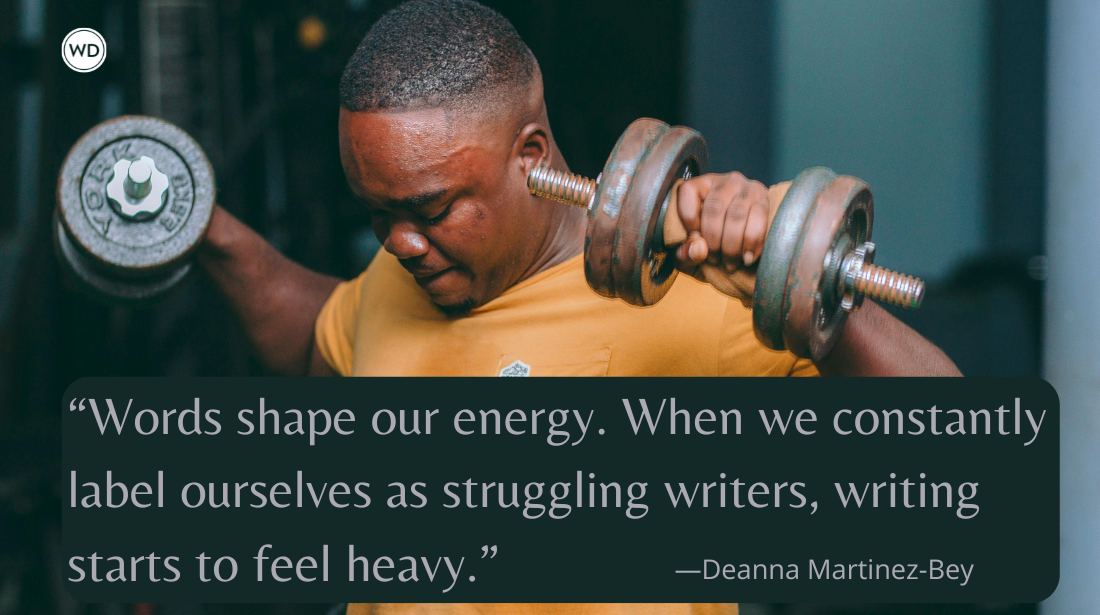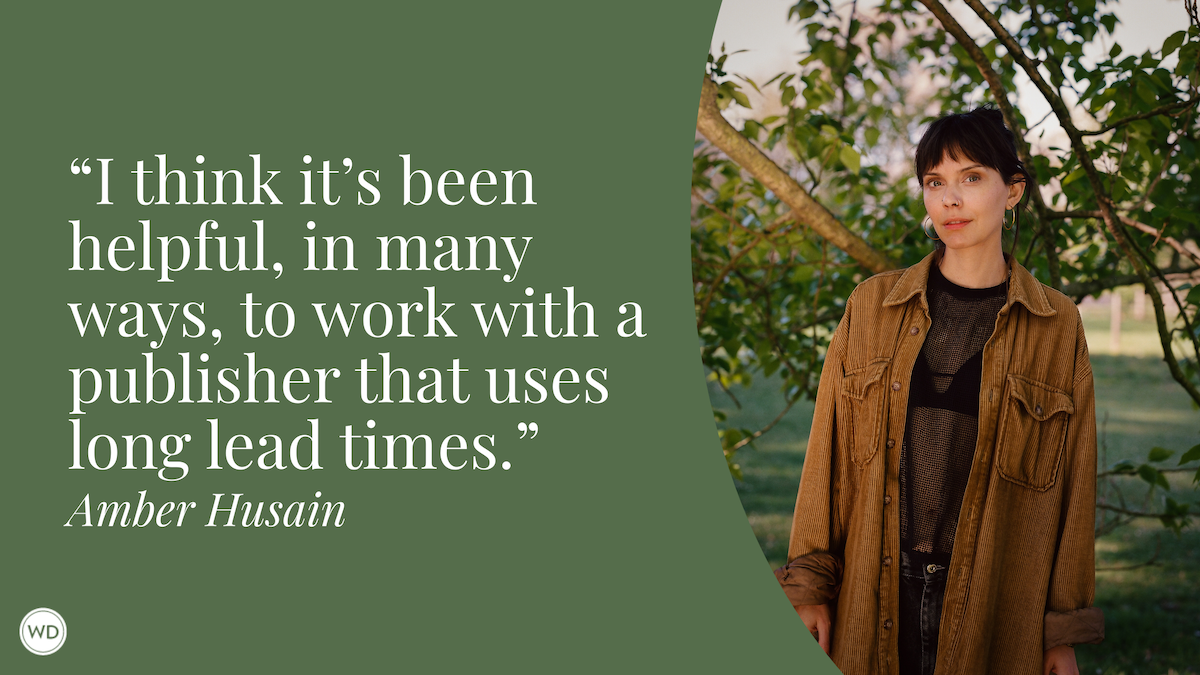The Ecstatic Embrace of Influence
Award-winning author Nina Schuyler discusses the common fear many writers have of being influenced by other writers and explains why she prefers to embrace influence instead.
Back in my MFA days, we read Harold Bloom's The Anxiety of Influence, and I learned for the first time writers were embarrassed to admit the influence of others. “I come down from the past, the past is my own,” wrote the poet Wallace Stevens. “I know of no one who has been particularly important to me. My reality-imagination complex is entirely my own.”
I was baffled: Should I not admit my influences? Why else would we be devouring published works if not to soak up influence? Was I resigning myself to being a derivative writer or not making the cut of what Bloom called a “strong” writer, whatever that means?
That waffling was very short-lived because I wanted to be influenced. I wanted to be cracked open to absorb what I didn’t know. To leave the small confines of my past behind and expand far beyond my little self.
The early writing days were sometimes brutal but also beautiful. They left me wide open to so many influences—Alice Munro, William Trevor, W.H. Auden, Denis Johnson, James Baldwin, Toni Morrison, Gina Berriault, oh, the list is long. It’s painful and exhilarating to become permeable, which is the only way to learn. The more I stayed open, the more I was influenced, thank god.
For my short story collection, In This Ravishing World, which won the W.S. Porter Prize and the Prism Prize for Climate Literature, I have no shame or anxiety about admitting the influence of picture books, yes, picture books that I read as a young girl, and then again as a mother. Those books are full of talking rabbits, dogs, mice, turtles, and Frog and Toad (remember?), poor Solomon, the rabbit who turns into a nail. These nonhuman beings who want, need, feel, schem,e and plan—such rich inner lives. The world, all of it, is animated. I confess openly, happily, that those early years influenced me, and in this collection, I animated Nature. I let it speak, hoping to let others experience Nature’s aliveness.
I was influenced by the brilliant book Braiding Sweetgrass, by Robin Wall Kimmerer, who, as she learned Potowatomi, felt her synapses zap, an electric current sizzle as the English nouns bay, mountain, hill, and grass were turned into verbs. “A bay is a noun only if water is dead… all are possible verbs in a world where everything is alive,” she writes.
I was influenced by Ursula K. Le Guin’s short story, “The Direction of the Road,” told from the point of view of an old oak tree. (Go ahead, her story told me, animate!) Now, her other readers and I can imagine the world from a tree’s vantage point. How great is that? And Le Guin’s story, “Mazes,” from the perspective of a lab creature trapped and dropped in a maze, who wonders: “We are both intelligent creatures; we are both maze-builders; surely it would be quite easy to learn to talk together!” And Karen Joy Fowler’s short story “Us” from the point of view of lab rats designed to be subjects in medical experiments. And The Overstory, by Richard Powers, who was influenced by Professor of Forest Ecology Suzanne Simard’s research, who animated the trees talking to each other through the underground telegraph system of fungi.
I get down on my knees and thank the powerful influence of Le Guin’s 1986 essay, “The Carrier Bag Theory of Fiction,” a call for new types of stories beyond the dominant narrative of the singular hero’s journey. (Is that the source of anxiety of Bloom’s writers—all males, by the way? Worried that influence would undermine the singular hero narrative—i.e., they wouldn’t be heroic creative geniuses?) I was influenced by Rebecca Solnit, who wrote in The Guardian, “Every crisis is in part a crisis in storytelling.” And my scientist friends who said in voices tinged with grief, we need stories about this crisis because information isn’t working.
A long list of influences:
- My children, the next generation, the next, onward, so they, too can experience exquisite beauty.
- Former President Barack Obama, who said: So we do not pass a world beyond repair.
- The long-necked, long-legged egret.
- My despair when I wasn’t doing something about the crisis.
- Home-grown tomatoes.
- The emerging science that, coupled with AI, is discovering that nonhuman beings are indeed speaking. The turtles (see, the children book storywriters knew), the bees, the mushrooms, have language.
- Apricots, nectarines.
- Karen Bakker’s book, The Sound of Life: How Digital is Bringing Us Closer to the Worlds of Animals and Plants.
- Fresh water/lack of fresh water.
- Yellow sunlight on the sidewalk.
- Mother bats speak to their babies in “motherese” language.
- Flooded streets, homes.
- Smoke from the wildfire that kept us inside the house for days and days.
- The evacuation maps posted on poles, in case there is a fire.
- Rebecca Solnit, who said, The future is not yet written.
- A hilltop topped with a cap of fog.
- Tulips. All colors of tulips.
My short story collection is a collection, or you might call it a novel, with Eleanor, a 70-year-old environmental economist, wandering through almost all the stories. But maybe it’s best to call it a carrier bag, holding many voices, human and Nature. I tried the traditional design and failed because I couldn’t imagine the climate crisis addressed by one voice, by a singular hero or heroine.
In that bag, there is complexity and nuance in the different characters’ responses to the crisis. Some are ready to face it; some not at all. Others turn to it now and then, and though Eleanor feels the gaping emptiness of grief, she finds a way out. It’s a necessary nuance because we can’t pummel each other over the head with ideology. There has to be understanding, care, and thoughtfulness about all the interests at stake.
Le Guin and E. O. Wilson (“When you have seen one ant, one bird, one tree, you have not seen them all.”-Wilson (influenced)), Bill McKibbon, and others say: Stop being an individual; join a community, an organization, or a big group of people to take on the deepest problems humans have ever encountered. This resounding cry influenced me.
Nature has seen 4.5 billion years of evolution. What would it say about the earth collapsing into a shadow of its former magnificence? What does it want to tell us? Maybe Nature has the best stories, not only for humans but for all beings. Maybe you’ll be influenced.
Check out Nina Schuyler's In This Ravishing World here:
(WD uses affiliate links)
Nina Schuyler’s novel, Afterword, was published in 2023. Her novel, The Translator, won the Next Generation Indie Book Award for General Fiction and was shortlisted for the William Saroyan International Writing Prize. Her novel, The Painting, was shortlisted for the Northern California Book Award. Her nonfiction book, How to Write Stunning Sentences, is a bestseller. She teaches creative writing for Stanford Continuing Studies and the University of San Francisco. She lives in California. (Photo credit: Bryan Hendon)







